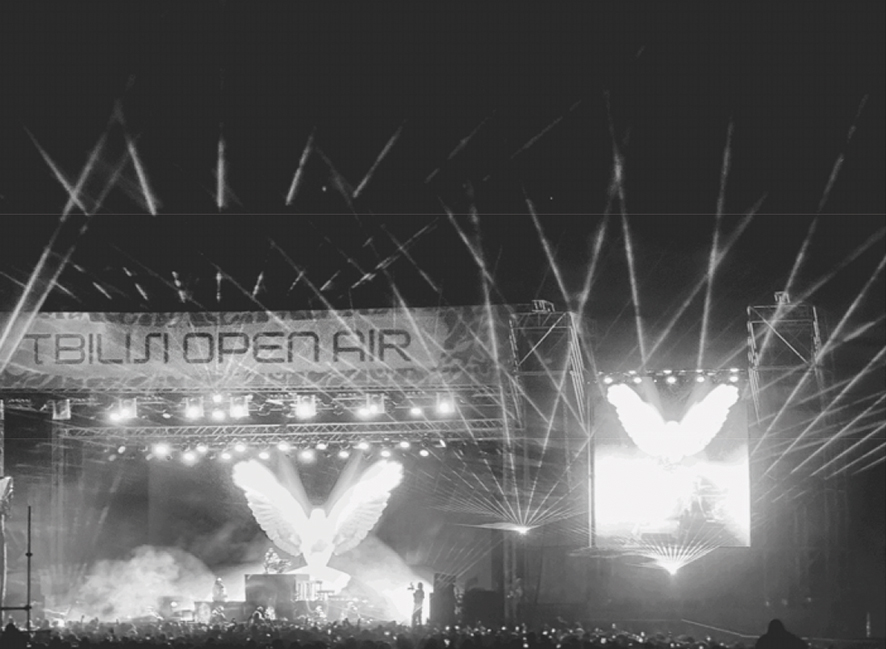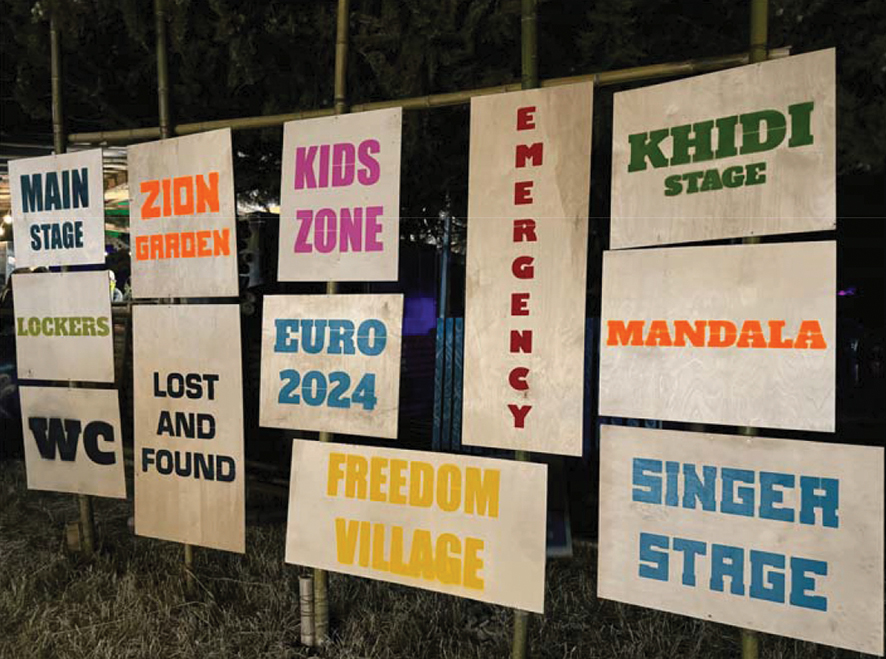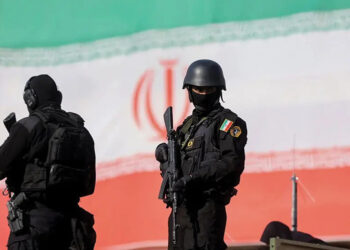The Tbilisi Open Air Festival, held on June 21-23, 2024, stands as one of the most prominent music festivals in the Caucasus region. Since its inception, the festival has grown significantly in scope and influence, embodying a fusion of music, culture, and social activism. Featuring headliners such as Aurora, Archive, MokuMoku, Mechanical Rainbow, Lebanon Hanover, M.I.A., Circus Mircus, Afternoon Version, Masego, La Femme, The Tiger Lillies, High Fade, and others, this year’s festival provided a rich and miscellaneous experience.
More Than An Open Air Festival
The mission of Tbilisi Open Air Festival is multi-faceted, focusing on promoting musical diversity, fostering a sense of community, and providing a platform for social and political expression. Central to its mission is the celebration of freedom, creativity, and nonconformity. The festival seeks to bridge cultural divides and promote understanding through the universal language of music, thereby contributing to the cultural enrichment of the region.
The festival plays a crucial role in the Georgian music scene. It provides a rare opportunity for local artists to perform alongside international acts, fostering a creative exchange that enriches the local music culture. The festival has featured a variety of performers, from globally renowned artists to emerging local talents, thus supporting the development of Georgia’s music industry. Furthermore, the festival acts as a cultural melting pot, attracting attendees from different parts of the world. This diversity not only enhances the cultural fabric of Tbilisi, but also positions the city as a burgeoning hub for international cultural exchange.
Tbilisi Open Air Festival has often been a venue for expression and protest. Georgia’s turbulent political landscape, characterized by its struggle for democratic reform and independence from Russian influence, has found an outlet in the festival. Themes of freedom and resistance are commonly reflected in the performances and the overall ambiance of the event. The festival also advocates for various causes, including LGBTQ+ rights, environmental sustainability, and social justice. It provides a platform for activists and organizations to reach a wider audience, thus amplifying their messages.
This aspect of the festival is particularly significant in a country where social and political activism can often be suppressed. The inclusive and progressive nature of the festival also fosters a sense of community among attendees. It is a space where people can come together to celebrate diversity, creativity, and mutual respect, which is especially important in a society that continues to grapple with issues of inequality and division.

Highlights of the 2024 Tbilisi Open Air Festival
The political undertones of Tbilisi Open Air 2024 are unmistakable. The festival acts as a platform for political expression. This year, M.I.A. and The Tiger Lillies performed with the Georgian flag on stage, symbolizing solidarity with Georgia. Both M.I.A. and Aurora made statements supporting Georgia’s recognition and struggle against Russian oppression. The metaphorical and allusive nature of many statements, especially from international artists, underscores a troubling trend. Direct and explicit political statements are increasingly seen as risky, potentially jeopardizing the festival’s future and its organizers. This shift reflects broader concerns about freedom of expression in politically volatile environments. The festival, therefore, becomes a battleground for advocating and protecting civil liberties, emphasizing the importance of political activism through cultural events.
Philosophically, Tbilisi Open Air Festival embodies the principles of freedom and equality. The inclusion of “Freedom Village” within the festival grounds, where discussions on topics like “From Keep-to-Protect” and “Civil Society and European Way” take place, encourages philosophical discourse. These conversations are pivotal in fostering a deeper understanding of freedom, not just as a political concept but as a fundamental human right.
From a sociological perspective, Tbilisi Open Air 2024 functions as a microcosm of societal values and tensions. The festival’s focus on freedom, equality, and diversity reflects the aspirations and struggles of contemporary society. The collaboration with the Georgian UN Association and other partners to promote civil activism and diversity indicates a strong commitment to social justice and inclusion.
However, the cautious approach to political statements by international artists highlights a sociological dilemma. It points to the pervasive fear of repercussions for speaking out against oppressive regimes. This phenomenon is not unique to Georgia but resonates globally, where freedom of expression is increasingly under threat. The festival, therefore, becomes a sociological study of how cultural events navigate political landscapes and advocate for social change within constrained environments.
Aurora: Ethereal Soundscapes and Emotional Depth
Aurora’s music is characterized by its ethereal and haunting qualities, blending elements of folk, electronic, and pop. Her use of lush, layered soundscapes combined with poignant lyrics creates an immersive auditory experience. Songs like “Runaway” and “Cure for Me” showcase her ability to blend melancholic melodies with powerful, uplifting beats. Aurora’s performance was an emotional journey, offering introspection and a sense of connection to the natural and spiritual worlds.
Archive: Sonic Complexity and Thematic Depth
Archive’s music embodies a complex amalgamation of progressive rock, electronica, and trip-hop. Their sound is often described as cinematic, with albums like “Londinium” and “Controlling Crowds” exploring themes of dystopia, human emotion, and societal critique. Archive’s inclusion in the festival underscored a commitment to deep, reflective music that challenges the listener both sonically and intellectually.

MokuMoku, Afternoon Version, Circus Mircus, and Mechanical Rainbow: Georgian Innovation
MokuMoku and Circus Mircus represent the cutting edge of the Georgian music scene. Afternoon Version’s experimental rock pushes the boundaries of traditional rock with innovative structures and unconventional rhythms, while Mechanical Rainbow’s eclectic soundscapes blend various genres to create a unique auditory experience. These bands highlight the local musical creativity and the festival’s support for homegrown talent, fostering a sense of national pride and cultural identity.
Lebanon Hanover: Post-Punk Minimalism and Dark Aesthetics
Lebanon Hanover’s music is characterized by its minimalist instrumentation and melancholic tones, drawing heavily from the post-punk and gothic rock traditions. Their sound, which includes stark basslines and haunting vocals, evokes a sense of nostalgia and existential contemplation. Tracks like “Gallowdance” and “Babes of the 80s” offer a glimpse into their dark, yet strangely comforting, musical world. Their presence at the festival catered to a niche audience that appreciates the depth and raw emotion of post-punk music.
M.I.A.: Political Provocateur and Global Fusion
M.I.A.’s music is a bold fusion of hip-hop, electronic, and world music elements, often accompanied by politically charged lyrics. Her songs such as “Paper Planes” and “Borders” tackle issues of immigration, identity, and global inequality. M.I.A.’s performance was a high-energy, provocative affair that not only entertained but also stimulated political discourse. Her inclusion highlighted the festival’s commitment to artists who use their platform to address pressing social and political issues.
Masego: Jazz Fusion and Smooth Grooves
Masego’s music is a sophisticated blend of jazz, soul, and R&B, characterized by his smooth saxophone playing and charismatic stage presence. Tracks like “Tadow” and “Navajo” highlighted his ability to seamlessly blend genres, creating a sound that is both modern and timeless. Masego’s performance was a highlight for those who appreciate musical virtuosity and genre fusion.
La Femme: Psychedelic Elegance
La Femme’s music is a vibrant mix of psychedelic pop and new wave, with a distinctly French flair. Their sound is both retro and futuristic, combining catchy melodies with experimental elements. Songs like “Sur La Planche” and “Tatiana” exemplify their ability to create music that is both accessible and avant-garde. La Femme’s inclusion underscored the festival’s appreciation for eclectic and innovative sounds.
The Tiger Lillies: Dark Cabaret
The Tiger Lillies are known for their dark cabaret style, which combines elements of punk, opera, and vaudeville. Their music often explores macabre themes with a theatrical flair, creating a unique and engaging performance experience. Tracks like “Start a Fire” and “Banging in the Nails” exemplify their ability to blend dark humor with poignant social commentary. Their presence at the festival added a touch of theatricality and dark humor.
Cultural Phenomenon
Tbilisi Open Air Festival 2024 is not just a musical event but a cultural phenomenon that reflects and engages with contemporary social and political issues. The inclusion of artists like M.I.A. emphasizes the festival’s role as a platform for political expression and activism. M.I.A.’s music, which addresses themes of immigration and global inequality, resonates with ongoing debates about these issues worldwide.
Furthermore, the festival’s support for local Georgian artists like MokuMoku, Afternoon Version and Mechanical Rainbow highlights the importance of fostering national talent and cultural identity in an increasingly globalized world. Their performances celebrate Georgian creativity and provide a platform for local voices on an international stage.
In addition, the diverse lineup underscores the festival’s commitment to inclusivity and diversity, showcasing a wide range of musical genres and cultural backgrounds. This diversity not only enriches the festival experience but also promotes cross-cultural understanding and appreciation.
By Ivan Nechaev













